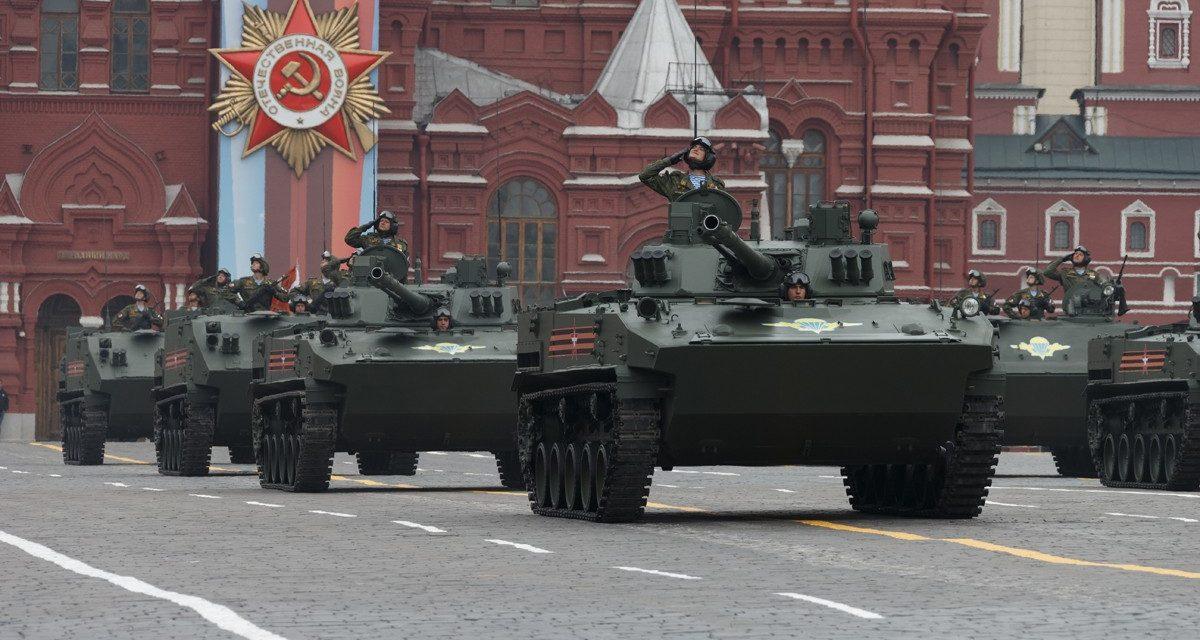Katherine Kjellström Elgin

Editor’s note: Welcome to another installment of our weekly War Books series! The premise is simple and straightforward. We ask an expert on a particular topic to recommend five books on that topic and tell us what sets each one apart. War Books is a resource for MWI readers who want to learn more about important subjects related to modern war and are looking for books to add to their reading lists.
The ongoing conflict in Ukraine has revealed a lot about the Russian military and what the world can expect from modern-day large-scale combat operations. However, an important distinction for lessons learned will be what insights can be generalized to other nations and which remain particular to the Russian military. That’s why we asked Katherine Kjellström Elgin, an MWI research fellow, to contribute this edition of War Books. We gave her the following prompt: What five books would you recommend for readers to better understand Russia’s military and the Ukraine War?
Russia’s Military Revival, by Bettina Renz
Published in 2018, Renz provides a comprehensive analysis of the Russian military’s resurgence under Vladimir Putin by examining the history and organization of the Russian military and developments in Russian military thinking. In so doing, she works to contextualize the Russian military’s reform efforts under Putin within Russia’s broader foreign policy objectives and argues that while the Russian military improved greatly from the 1990s, it does not yet rival the West’s capabilities. Her book is a particularly interesting read in light of the war in Ukraine, which, among other issues, begs the question of the degree to which the Russian military was truly revived.
The Transformation of Russia’s Armed Forces: Twenty Lost Years, edited by Roger McDermott
This edited volume, based on a special issue of the Journal of Slavic Military Studies, brings together several of the biggest names in Russian military analysis to discuss the challenges facing Russian policymakers as they tried to rebuild the Russian military. This collection highlights the considerations of and complications facing Russian leaders as they sought to build a military capable of defending Russian interests in the twenty-first century. Understanding how the Russian military became what it is today can help us understand where it might go after the war in Ukraine.
Putin’s Wars: From Chechnya to Ukraine, by Mark Galeotti
Published in November 2022, just months after the Russian invasion, this book, tracing the history of the Russian military since the 1990s, provides a thorough (what one reviewer called “encyclopedic”) look at Russia’s hard power. Galeotti’s analysis is remarkably timely, but readers should consider how the war complicates some of his arguments. Nevertheless, this book provides readers with a remarkable level of detail of the Russian military and paints a picture of a political leadership seduced by the perceived success of its military.
The Culture of Military Innovation: The Impact of Cultural Factors on the Revolution in Military Affairs in Russia, the US, and Israel, by Dima Adamsky
Soviet military thinkers were among the first to recognize a revolution in military affairs (RMA) based upon the growth and spread of information technologies—and yet, the Soviet military struggled to implement the technological realities of the RMA. In analyzing how three countries—the United States, the Soviet Union, and Israel—perceived and adapted to the RMA, Adamsky demonstrates that culture impacts the ways in which countries innovate militarily. Adamsky’s theoretical contributions to the understanding of military innovation and culture are noteworthy, and even readers less familiar with academic theory will appreciate what his analysis tells us about the Russian military.
Russian Military Strategy: Core Tenets and Operational Concepts, by Michael Kofman, et al
Michael Kofman, a former MWI fellow, is one of the most prominent voices on analysis of the war in Ukraine. His work on the Russian military is well worth a read, and this monograph by his team at CNA is no exception. The report provides an in-depth look at the way in which Russian military leaders conceive of Russian military strategy, with a thorough overview of how the Russian military plans (or perhaps planned) to fight, focusing on military strategy and operational concepts. As readers may recall, many analysts were surprised that the Russian military did not follow prescribed doctrine during the early stages of the unprovoked invasion of Ukraine in 2022. This report will help readers understand how many analysts expected the Russians to fight and how that differs from practice.
Dr. Katherine Kjellström Elgin is a fellow at the Center for Strategic and Budgetary Assessments. An expert on US and allied defense strategy, particularly with regard to Europe and Russia, she has held positions in both academic and policy organizations.
The views expressed are those of the author and do not reflect the official position of the United States Military Academy, Department of the Army, or Department of Defense.
No comments:
Post a Comment